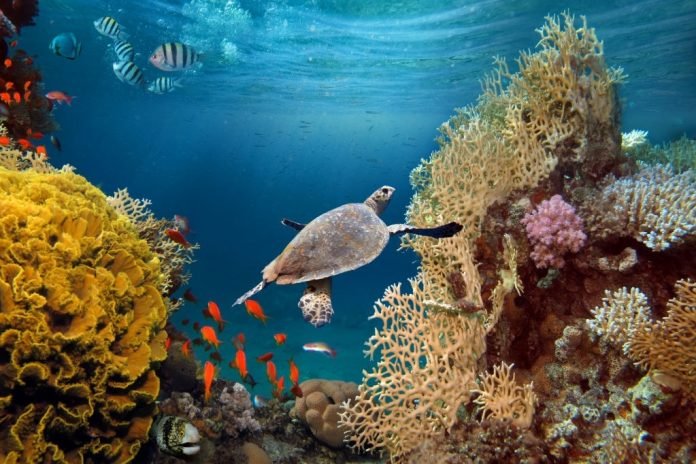Coral reefs are some of the most biologically diverse ecosystems we have on our planet.
Reefs provide food for millions of fish and aquatic animals as well as protect the coastlines from erosion and storms.
Humans also benefit from the fish found there in several ways.
We are constantly learning about the ecosystems in coral reefs and it is benefitting science immensely.
Scuba divers benefit from reefs a lot and divers enjoy the rich aquatic life found at coral reefs.
People also eat many of the fish located in reefs or near coral reefs. They are also known to be of great cultural importance to some countries.
Coral reefs are found along the coasts of over 100 different countries, however, this article will mostly talk about the reefs found in the Caribbean.
The reason why many of the coral reefs on Earth are in danger is mainly due to climate change, pollution, and bad fishing practices.
As we speak over close to 20% of the reefs worldwide have been lost already. Another 15 percent are in danger of being lost within the next ten to twenty years.
An additional 20 percent are under threat of being lost to us within twenty to forty years from now.
We can all agree that twenty to forty years is a relatively short period of time in the great scheme of things.
Losing the most biologically diverse ecosystems available on our planet would be a huge loss for everyone. We would be losing something very precious and dear to us.
Losing these biodiverse habitats also goes a long way for assessing the general health of our planet.
The value of our planet in terms of nature richness goes down a lot if we lose our coral reefs.
Coral reefs in the Caribbean have decreased by more than 50 percent in the past forty years, and could entirely disappear within 20 years.
This finding was recently published by the IUCN.
Many of the corals in the Caribbean started disappearing in the seventies. Overfishing and disease in the coral reefs is mostly to blame for the loss or reefs.
The fact that our oceans are warming is also a contributing factor to the loss worldwide.
Coral reefs hold many of the cures to some of our most common ailments. Treatments for asthma, cancer, and several types of skin creams were developed from the reefs.
So what can we do about this growing problem that we face.
Actually there are a number of things people are already doing, and we need to do more if we are to save them.
One of the ways you can help is by adopting a reef, this in essence protects the reef by you making a purchase. Your money goes toward protecting one that needs saving.
Apart from donating your money, there are other ways you can also help to stop the decline.
By using less water in your everyday life you prevent less wastewater and runoff that pollutes our world’s oceans. You can also take your bike to work, or buy an electric car and get rid of your polluting gas car.
Burning fossil fuels is a direct contributor to the bleaching of corals and can lead to their destruction.
You can also do your best to only use organic fertilizers so that no toxic fertilizers end up in the water system.
By planting a tree you can help the fight against global warming which directly influences the decline in coral reefs around the world.
Trees provide oxygen and reduce the amount of runoff that goes into our oceans.
If you have some extra time on your hands you can also volunteer to help clean up the reefs.
One method many are using to help combat the decline is by writing to our governments and asking them to better address the problem.
Let’s hope our generation lives up to this challenge and manages to save the reefs.













i like this amazing post
Comments are closed.